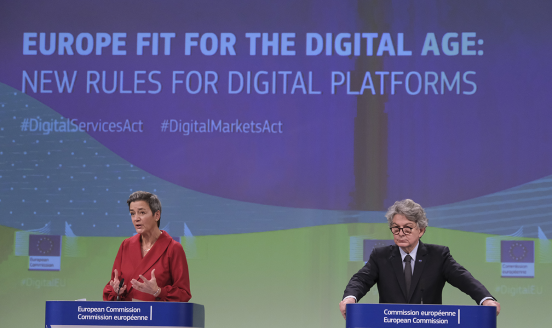Fines levied on banks in the Euribor antitrust case do not lessen the need for new regulation
Ex-post enforcement is good, but it is not enough. The best way to fight collusion is prevention, not punishment.
A benchmark is a statistical measure providing a reference for prices of financial instruments or financial contracts. The Euro Interbank Offered Rate (EURIBOR) is one such a benchmark: EURIBOR is the rate at which euro interbank term deposits are being offered by one prime bank to another within the EMU zone (read more at European Banking Federation). In October 2011, the European Commission started an investigation for suspected manipulations of EURIBOR by a banking industry cartel. According to the allegations, banks' traders may have coordinated to influence the determination of EURIBOR and increase their profits and the expenses of banks' customers.
Expectations are mounting about the European Commission’s investigation on suspected manipulations of global interest rate benchmarks by a banking industry cartel. Three banking groups are reported to be ready to admit wrongdoing and settle: Deutsche Bank, Royal Bank of Scotland and Société Générale. Other banks may hold out from the settlement and face formal charges at a later stage.
In September, Michel Barnier, the EU Commissioner responsible for internal market and services, has tabled a proposal for a new regulation on benchmark setting. The proposal significantly limits self-regulation: under the new rules, the process of benchmark setting would be subject to prior authorization and on-going supervision. Specific provisions to avoid conflict of interests and enhance transparency are also envisaged. But before becoming law, the proposal has to be adopted by the European Parliament and the Council. The fact that EU antitrust Chief, Joaquin Almunia, will soon sanctions banks, should not distract decision makers: a substantial reform of benchmark regulation is mandatory. Antitrust enforcement is one of the most important tools to foster economic wellbeing and this investigation is sending the right signal: the Commission is ready to sanction those that breach the law. But if the ultimate aim is to restore citizens’ trust in markets, the Euribor antitrust case alone is unlikely to help. Here is why.
Competition policy protects consumers and when a cartel is established a negative effect on consumers is presumed. In the Euribor case, virtually everybody is directly or indirectly a customer: a householder with a mortgage, a small firm asking for a loan, a public entity buying ‘swaps’, a consumer using her credit card, an investor buying derivatives for millions of euros. These customers de-facto entered into a deal with banks and agreed that the price of that deal would be paid in the future but it would be anchored to an independent benchmark: Euribor, an average of what a panel of banks believes is the rate at which prime banks would exchange funds. Naturally, it would be rather silly to enter into such a deal if you know that your counterpart will be able to adjust the price to its advantage at a later stage. But Euribor allegedly allowed for this ex-post manipulation, via a network of traders from different banks who optimised their (and, therefore, their banks’) revenue streams over time, by aligning the incentives of the respective banks to submit high or low estimates for Euribor. It will not help the banks’ case to show that shareholders were not aware of traders’ wrongdoing. As the decision against Microsoft in March 2013 shows, the European Commission does not consider lack of internal control to be a mitigating factor.
However, the fine that will eventually be imposed by the Commission is likely to be far below the level that would ensure deterrence. Fines should account for the probability that a cartel will be discovered. Since this probability is low, researchers suggest that fines should be six to seven times higher than the expected gains yielded by the infringement in order to ensure deterrence. In the case of Euribor, the potential benefits are large so that fines would have to be huge. The evidence in the public domain suggests that traders could gain hundreds of thousands of euros daily by moving the Euribor rate up or down by just one basis point. But in practice such fines are never levied. Often, fines do not even match the excess profits. One of the reasons for this striking outcome is that the Commission will not impose a fine that would jeopardise the economic viability of the infringer. Empirical analysis shows that during the crisis, the Commission considerably reduced its fines. Companies are allowed to claim that they are ‘unable to pay’. If they truly are, the fine has to be reduced.
A fine in the Euribor case that would offset the profits made from the infringement, and would achieve the deterrent level suggested by economic theory, would simply be unrealistic. Banks would not be able to pay it. And pushing a bank out of the market because of antitrust sanctions would do more harm than good to the economy.
Ex-post enforcement is good, but it is not enough. The best way to fight collusion is prevention, not punishment. To rebuild trust in financial markets, the conditions must be created that will make the market work properly. Preventive measures could entail tighter regulatory control and the use of data-based estimation to complement banks’ subjective contributions. More generally, more transparency is needed. Without bold moves from EU and national legislators and more stringent supervision, Euribor-style scandals could happen again.



